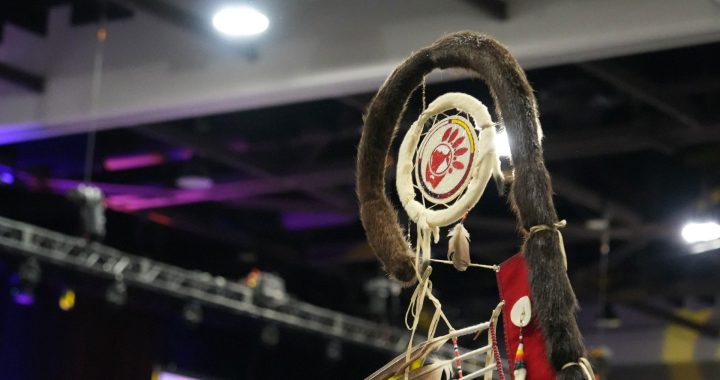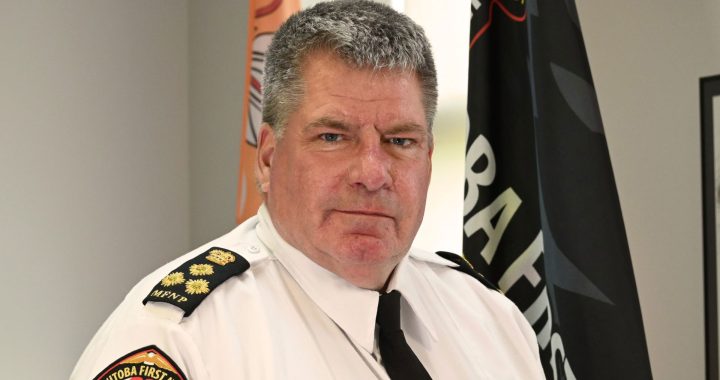While president-elect Donald Trump has his sights set on drilling in the Arctic National Wildlife Refuge, no oil and gas developers are willing to do that yet.
On Wednesday, the U.S. Department of Interior announced a federally mandated oil and gas lease sale within the refuge received zero bids.
The chief of the Vuntut Gwitchin First Nation in northern Yukon said she’s breathing a tentative sigh of relief over the failed sale.
“We’re excited, we’re happy and we’re pleased,” Chief Pauline Frost told APTN News. “Drilling in the Arctic refuge is really bad for business and not good for the environment. And I think that we’re seeing that clearly.”
The 7.9 million-hectare refuge spans across northeast Alaska and is home to polar bears, musk oxen, migratory birds and other wildlife.
Although most of the refuge is legally protected, in 1980 Congress set aside about 600,000-hectares of the refuge’s coastal plain as an area of potential oil and gas development.
The plain borders the Beaufort Sea and serves as vital nursery habitat for the Porcupine caribou herd.
It’s considered a sacred to the Gwich’in people in Alaska and northern Canada who call it Iizhik Gwats’an Gwandaii Goodlit— or The Sacred Place Where Life Begins.
“Any development on the coastal plain will have devastating impact on caribou and our inherent rights and human rights as Gwich’in people,” Frost said. “Our stories as Gwich’in Nations have been long told that we never go to this area defined as a sacred place for a specific reason, because that’s where life begins.
“We don’t want the life to end there, the animals, the birds and the waterfowl that occupy this vast area.”
Drilling in refuge ‘bad business’
Trump – along with the state of Alaska – is eager to tap into the estimated billions of barrels oil cradled within the plain.
During the last days of his first presidency in 2021, Trump finalized a plan to open the refuge up to oil and gas development. The plan required two congressionally mandated lease sales within the refuge.
But during the first sale, major Canadian and U.S banks said they wouldn’t fund drilling in the refuge due to mounting public pressure from the Gwich’in and environmental groups.
The sale generated a mere $14.4 million of the billions that were promised. The few leases that were sold were later scrapped by the bidders themselves or the Biden administration.
Andy Moderow, senior director of policy for the Alaskan Wilderness League, said the lack of interest during the second sale speaks volumes.
“It shows that Arctic refuge drilling is bad business. It’s not the way of the future. And smart companies are staying back,” he said.
“I think the handwriting’s pretty much on the wall at this point. The Arctic Refuge is not a place that should be an oilfield.”
Alaska pushes back
But the sale’s failure doesn’t mean the refuge is out of the woods yet.
Last month, the Biden administration reduced the size of the sale area to the legal minimum of 161,000-hectares.
On Monday, the state of Alaska sued the Department of Interior and the Bureau of Land Management over the amount of land for sale, claiming it was too restrictive and therefore unattractive to industry.
Alaska Governor Mike Dunleavy called the Biden’s administration’s handling of the sale “irrational.”
“These resources not only help our energy independence as a nation but also grows the Alaska economy and puts more money in the Alaska Permanent Fund for future generations,” he said in a statement.
“We have already heard comments from the incoming president that his administration will thankfully take a different tack and open up those areas that are meant to be developed. But unfortunately, we can’t wait for that—we have to challenge this unlawful action now,” he said.
If successful, the lawsuit could open the door for trump to re-do the sale and offer more land.
The state filed a similar lawsuit in July alleging it lost billions in lost revenue from the cancelled lease sales. That action remains pending.
Moderow said Trump may very well try to push for new legislation to open the refuge to development once he takes office.
However, he said there’s a good chance that could backfire.
“It would be pretty wild since the first two (sales) were a complete disaster with no one showing up,” he said.
Frost acknowledged Trump will “push hard” to open the refuge at any cost.
“The refuge will bring in $1.8 billion in revenue. That’s only six months worth of oil. How are we going to destroy a fragile ecosystem for six months?” she asked.
Frost said the Gwich’in will continue to fight to protect the refuge until there are permanent protections in place.
“The Arctic landscape is irreplaceable. And once you destroy it, it will not return to its original state.”










